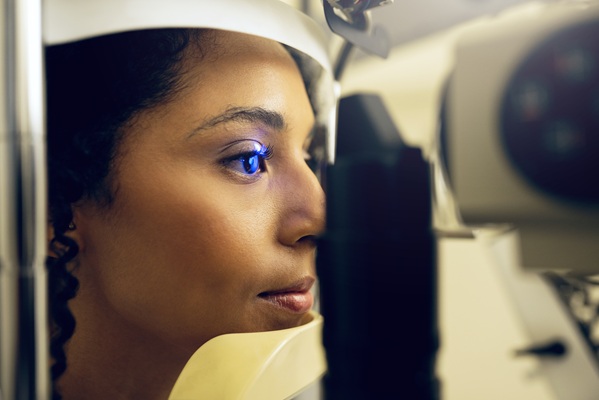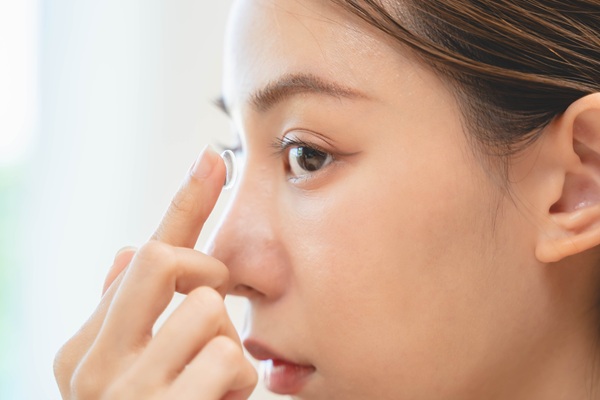A Quick Guide to LipiFlow®

LipiFlow® is an innovative treatment solution for severe and chronic dry eye, particularly dry eye that is caused by meibomian gland dysfunction (MGD). LipiFLow® is an effective in-office treatment procedure that is performed by an eye care professional.
An overview of LipiFlow® for dry-eye relief
The following is a complete guide to LipiFlow, including how it is defined, its benefits, when it is recommended by eye professionals, and a review of how the treatment process works. This should help you determine whether or not scheduling LipiFlow treatment is right for you.
What is LipiFlow?
LipiFlow is an innovative treatment device offered by many optometrists and eye specialists. The purpose of LipiFlow is to target and effectively remove blockages from the meibomian glands. This ensures the oil glands are able to function properly and produce the outermost tear film and keep the eyes lubricated. In simple terms, LipiFlow is an in-office procedure used to treat MGD, one of the main causes of dry eye.
What are the benefits of LipiFlow?
LipiFlow is a great way to treat dry eyes long-term because it deals directly with the source of the dry eyes, rather than simply treating the symptoms. Notable benefits of LipiFlow include:
- Addresses the root problem of dry eye
- Restores the natural balance of tears
- An all-natural treatment solution
- More effective alternative to eye drops
- Long-term results
Effective dry-eye relief through LipiFlow treatment allows many to feel better each day, entirely eliminating their symptoms.
When is LipiFlow recommended?
LipiFlow is recommended to patients with a condition of dry eye that does not improve over time with the assistance of lifestyle changes or alternative treatment solutions. The LipiFlow treatment process is monitored by an eye professional, and they may recommend alterations or discontinuation of treatment depending on the results that are achieved.
How does the LipiFlow treatment process work?
The treatment process involves the placement of LipiFlow activators over the eyes. These LipiFlow activators produce therapeutic heat over the eyes to unblock the passages in the meibomian glands. They are also designed to ensure the cornea is not damaged in any way. The procedure only takes 12 minutes for each session. It can take between six and eight weeks to see the desired results after the treatment.
Is LipiFlow safe?
LipiFlow is considered generally safe for patients. It is a non-invasive procedure that is performed in the office with the supervision of an eye specialist. If the patient experiences any discomfort during the procedure, they can stop treatment if necessary. There are no known long-term concerns. If any issues do arise post-procedure, then the patient can notify the eye specialist to arrange a follow-up visit.
How long does LipiFlow remain effective?
LipiFlow is not designed as a permanent solution for dry eye treatment. Most patients report benefits of LipiFlow that last for six months to a year on average. Most patients are able to receive additional LipiFlow once the treatment is no longer effective. It is important to keep in mind that dry eye is a chronic condition, and monitoring the condition and having a long-term treatment and prevention plan are important.
Additional tips for dry eye relief
As mentioned, LipiFlow should be combined with a more comprehensive plan to treat (and prevent) dry eye in the long term. The following are several additional tips to consider for treating dry eye.
Place humidifiers around your home
Keeping moisture in the air is a great way to reduce dry eyes. Consider adding a humidifier to your bedroom and throughout your home and office to keep your eyes moisturized and avoid them being irritated by dry air.
Be mindful of how work affects your eyes
Sitting in front of a computer screen for long hours without many breaks can make dry eye conditions worse. Be sure to take frequent breaks and avoid placing digital screens too close to the eyes.
Avoid smoking and being around smoke
Being around smoke can increase the risk of dry eye. Most notably, this includes smoking, but it can also include activities such as grilling. Be sure to take precautions when around smoky environments.
Talk to an eye care professional about LipiFlow®
Are you experiencing symptoms of dry eye that do not improve on their own or with over-the-counter products? If so, then reach out to our eye care team today to arrange a visit. We can assess your symptoms, conduct an eye examination, and help you determine whether or not the LipiFlow procedure is right for you.
Get more information here: https://www.texasoptical.net or call Texas Optical at (214) 771-7333
Check out what others are saying about our services on Yelp: Read our Yelp reviews.
Recent Posts
For those living with diabetes, undergoing a diabetic eye exam is one of the most important steps in protecting their vision and overall eye health. High blood sugar levels can lead to a range of complications, including conditions that damage the eyes over time. These exams help detect these issues before they become serious, allowing…
Contact lenses provide clear vision and convenience for individuals who prefer an alternative to eyeglasses. However, proper care and maintenance are essential to prevent infections, irritation, and eye damage. Neglecting hygiene practices can lead to serious eye conditions, including corneal ulcers and keratitis. Understanding how to clean, store, and handle contact lenses ensures long-term eye…
Maintaining eye health and preventing long-term issues is the result of consistent and quality vision care. Many people focus on overall wellness but may overlook daily habits that support healthy eyesight. However, taking simple steps each day can protect vision, reduce eye strain, and prevent future complications. By making eye health a priority, it is…
Prescription contacts provide vision correction, comfort, and convenience for those who do not want to wear glasses. However, caring for and wearing contacts takes some getting used to. Learning to insert, remove, and maintain them will help ensure a comfortable and safe experience.Not all contact lenses are the same, and choosing the right pair is…


